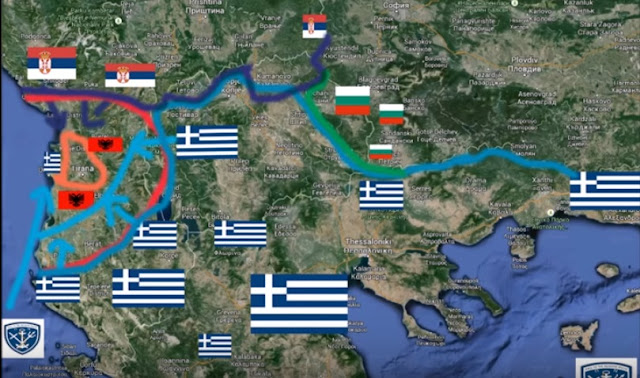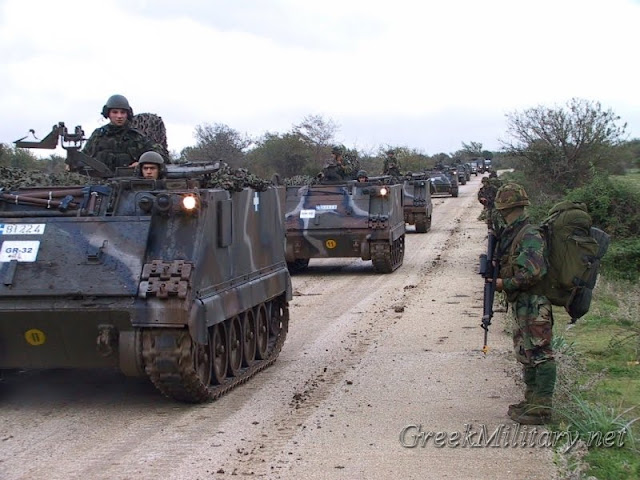
By InSerbia with agencies - Apr 28, 2017
PHOTONIKOLA DIMITRIJEVIC /
TANJUG
Photo: Nikola Dimitrijevic / Tanjug
Unrest in Macedonia could easily erupt into ethnic conflict between Macedonians and Albanians, said last night political-military analyst Zoran Dragisic.
“This is the last blow that, I fear, Macedonia will not be able to withstand. It was a question when something like this would happen, that would lead Macedonia into agony. I am afraid that after this it will be difficult to find a solution”, said Dragisic for Pink television.
He said that one should not expect much from the military and police in calming the situation as they are multi-ethnic.
Dragisic reminded that in the event of the dissolution of Yugoslavia something similar happened when everyone went to their camp.
“Similar thing will happen in Macedonia, I fear that the conflict between the two parties of Gruevski and Zaev will turn into inter-ethnic conflict of Albanians and Macedonians”, said Dragisic.
He said that since the Prizren League Austro-Hungary was a sponsor of the Greater Albanian separatism.
“Now they felt the opportunity to put a part of Macedonian territory under their control using the chaotic situation in Macedonia. All the compromises that have been done to Albanians have been completed”, said Dragisic.
He added that Macedonia was forced to recognize the independence of Kosovo in order to preserve internal peace, and that more than 90 percent of Macedonians are definitely against it, but even those 10 percent say that they had to do it to preserve the peace.
Dragisic said that declaring a state of emergency is not a good measure, unless there is an escalation of the conflict, but that the state of emergency must be declared if there is an armed conflict.
Analyst Dejan Vuk Stankovic said that Macedonians have shown that they are ready to defend their state, while political elite failed showing the lack of “national self-respect”.
Vuk Stankovic stressed that Macedonia has, since 2001, had problem with the functioning of the state and there is a deep political division of the political elite in Macedonia.
“The indifference of the EU hides the support to the only option in Macedonia. For us it is interesting that Macedonia is a good example of what we cannot allow, that the craving for power becomes stronger that the reason of state”, he said adding that Albanian swollen nationalism is more present, with support from the side.
Professor of the Faculty of Political Science Dragan Simeunovic said that the main question is what will happen to the Parliament, but that it is a fact that Albanians have moved in the direction of the creation of Greater Albania.
“Albanian extremists are ready to enter into Macedonia, it is a state that suits more to the Albanians, as long as Europe does not say anything against, and I doubt that. If Europe wanted the election they would have been held. Zaev could have called an election if he wanted to, and local elections will be held within a period determined by Europe”, said Simeunovic.
He said that it is certain that Albanian armed groups will not be activated until the crowd does not try forcibly to do something.
“Albanian side can be satisfied, in Tirana and Pristina and Western Macedonia. Calming the situation also suits us as a neighboring country, and we have to take care of the south of Serbia”, said Simeunovic.
Misa Djurkovic from the Institute for European Studies said that all this in Macedonia is a result of what happened in the past and the result of the catastrophic interference of the international community, as well as that direct responsibility is of the representatives of the EU.
“They are directly responsible for encouraging Zaev and Albanian parties to go in this direction. Today Zaev and Albanian members of the Parliament attempted a coup. They tried to forcibly take the Parliament contrary to the law, since first a commission should have been appointed”, said Djurkovic.
“This is a consequence of the interference from the side, Albanian factor contributed to it, and Edi Rama is the main destabilizer of the region”, said Djurkovic adding that on the other hand the President of Macedonia Djordje Ivanov behaved wisely and statesmanlike.
He explained that the Prime Minister of Albania Edi Rama agreed with representatives of Albanian parties on “Tirana platform”, which is a condition for the establishing the government and that Zaev at first refused to present to the government what “Tirana platform” means.
Djurkovic added that the platform, among other things, provides introduction of Albanian language on the whole territory which would become the official language along with Macedonian, then turning Macedonia into a bi-national state, the creation of Albanian canton, which is a road to federalization of Macedonia and creation of an independent state.
Albanians have set out to create their third state in the Balkans, said analysts for TV Pink. Analyst Dragomir Andjelkovic said that this is an attempt of Albanian forces to break up Macedonia.
“Zaev is ready to give them a lot, without thinking of the future of the state. Albanian separatism gained wings with the release of Ramush Haradinaj. They are ready for a war, and Macedonian people, like no other in the world, does not want to watch its state falling apart. If one allows Albanians to break things, Macedonia will be broken too”, said Andjelkovic.
Security expert Srdjan Perisic believes that Albanians have set out to create a third Albanian state, and have the support of the West and NATO, otherwise they would not have dared to take such a step.
“The West perceives them as its major factor. We are witnessing conflict and violence in Macedonia because some people only care about money and functions”, says Perisic.
As he said, Albania wants an intervention of the West, but only if it is in their favor. They tend to attract the West to react with conflict policy.
“For this conflict are responsible the EU and Brussels”, said Perisic.
Analyst Toni Naumovski believes that Macedonia after this will not be the same, because two Prime Ministers have been elected, one legal and one illegal minister, and that, as he said, a coup is destroying the state itself.
“This in all respects crashes the Republic of Macedonia and I am shocked because I hoped that the members of some parties will have at least a shred of sense”, said Naumovski, adding that these incidents will continue, if the state of emergency is not declared.
He, as he pointed out, expects the emergency state to be declared, which would stabilize the situation.
Security expert Dzevac Galijasevic said last night that what is happening in Macedonia is not Macedonian but Balkan crisis.
“Once again we have destabilization of the Balkans. For this crisis are to blame Brussels administration and governments of the Western countries and NATO. Creators of this crisis are at these addresses”, said Galijasevic for TV Pink.
He said that what remains for Serbia, as well as the next target after Macedonia, and he believes that is Montenegro, is to provide support and cooperate with Macedonian government and perform together in the defense of the integrity of each state individually.
Galijasevic, however, says that this is not real and that none of these states will not participate in organized support to their neighbor, or that they will not be united as Albanians.
“Montenegro is next and therefore the agreement on the delimitation and demarcation of the line between Kosovo and Montenegro is not signed yet”, he said.
Galijasevic said that destabilization of the Balkans is taking place in two directions: through Albanian nationalism and form of Islamic radicalism and terrorism, which the West supports in order to prevent Russia from exercising any influence in the Balkans.



















